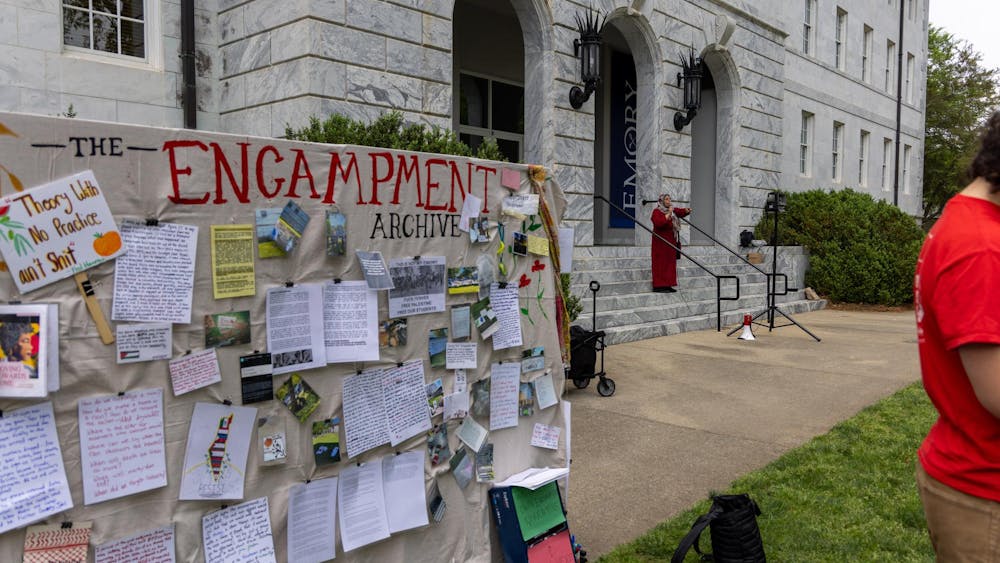A preliminary hearing for the suspect who allegedly vandalized the Emory Autism Center is set to take place on Nov. 4, according to Director of Communications for the DeKalb County District Attorney Yvette Jones.
Former Emory University-contracted employee Roy Lee Gordon Jr. was arrested on Sept. 22 on second-degree burglary charges.
The vandalism incident occurred over the weekend of Aug. 7 and Aug. 8, when Gordon allegedly painted the center with the N-word and swastikas. An Emory Police Department (EPD) report of the incident stated that vending machines were broken into and a glass door was left shattered.
A University employee discovered the vandalism on Aug. 9 and called EPD to report property damage to the center.

Photo Courtesy of Emory University
“To the best of my knowledge, [Gordon is] in jail,” said EPD Records Manager Ed Shoemaker. “I don’t think he’s bonded out.”
Gordon, who is Black, was employed at a company contracted by the University. He was not charged with a hate crime. A press release from the University on Sept. 23 announcing the arrest did not mention Gordon’s race.

Georgia’s hate crime law, which was enacted in 2020, defines a hate crime as an offense committed because of a victim’s “actual or perceived race, color, religion, national origin, sex, sexual orientation, gender, mental disabilty, or physical disability.”
While Gordon’s alleged vandalism included racist slurs and symbols, Emory Professor of Law Kay Levine told the Wheel that “the words of the statute technically fit the behavior,” but it will be up to the prosecutor to use the new hate crime statute.
“I can tell you that in most places, the hate crime statute carries a higher level of intent that the prosecutor has to prove, and higher penalties, than a basic crime like second-degree burglary,” Levine wrote in an email to the Wheel. “But the prosecutor is under no obligation to charge either the more serious crime or the less serious crime.”
Employees at the Emory Autism Center felt horrified in the aftermath of the alleged vandalism. “People were very upset; they felt very concerned that their sense of trust and safety for the center was at risk,” said Director of Emory Autism Center Mikle South. “Their mission is to help the autism community, so they felt like the mission was disrupted by this intruder.”
The center has since implemented new security measures such as video monitoring and requiring visitors to use their IDs to swipe in. South added that Campus Services and the University will conduct their own background checks when employing outside contractors going forward.




